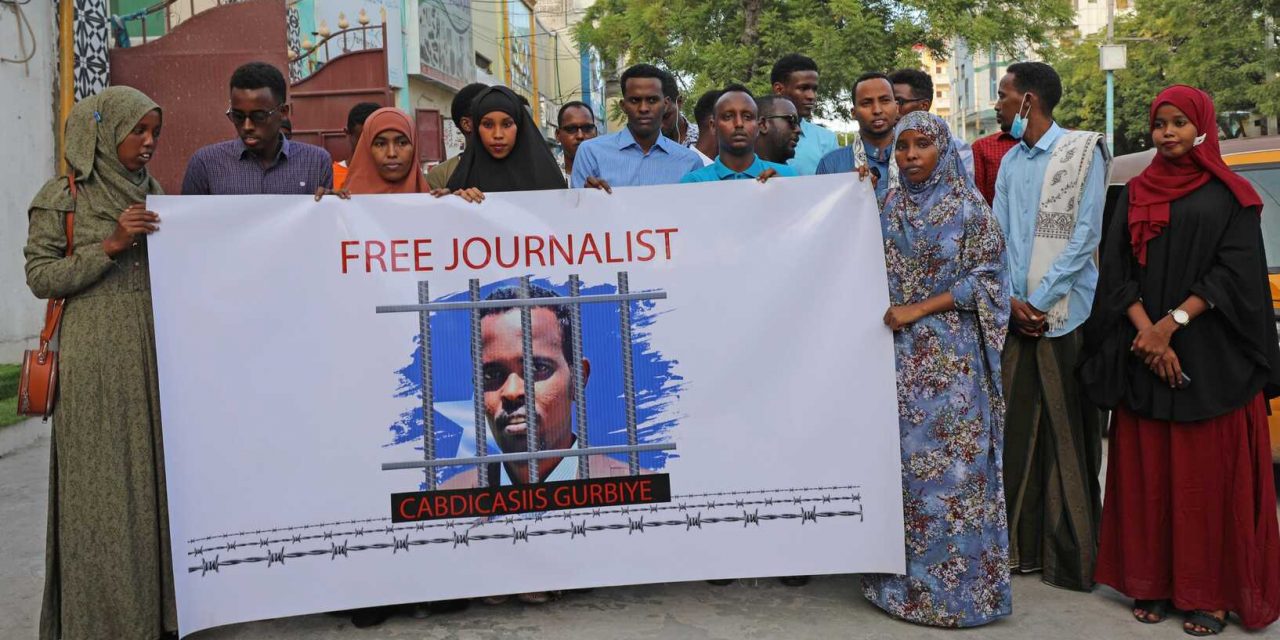From Bad to Worse: Press Freedom in Somalia Continues to Decline

By: FESOJ
Federation of Somali Journalists ‘Annual Press Freedom Report’ for Somalia has expressed concerns over the escalating climate of intimidation and harassment affecting the freedom of expression and access to information environment in the country, said a report issued by the group on Sunday.
Between May 2019 and May 2020, Somali journalists and media workers faced a deadly climate of violence and repression. In total, four journalists were killed, 47 were physically tortured or harassed, 7 wounded 5 media outlets were attacked while 64 were arbitrarily arrested in different parts of Somalia while carrying out their duties.
Although article 32 of Somalia’s provisional constitution protects the citizen’s right to access information, in practice, journalists, activists, researchers and citizens routinely face bureaucratic roadblocks in their quest to access even basic information. This is especially common across many ministries and office with the presidency and the prime minister “the least compliant”.
In the midst of the coronavirus outbreak, none of the Somali media institutions were accorded the opportunity to engage and ask either President or the Prime Minster questions about the country’s plans to combat COVID-19. The lack of opportunities for the press to speak directly with the leaders is a clear demonstration of an administration reluctant to interact with the media and to directly respond matters of public concerns.
“The Right of Access to Information law is one of the most important tools citizens have to ensure the openness and transparency of their government and its institutions, and it plays a role in the promotion and protection of democracy, so FESOJ with the help of other media organisations in Somalia will prioritize in the coming years for Somalia to have access to information law” said Mohamed Ibrahim Moalimuu Secretary General of Federation of Somali Journalists (FESOJ)
Fighting Misinformation in the Age of the Coronavirus
Journalists covering the coronavirus pandemic in Somalia are facing a variety of challenges such a movement restrictions and lack of access to timely and reliable pandemic information. This has the potential to raise the risk of false information spreading in the country. In spite of assurances from the Somali Prime Minster who announced that journalists will be classified as part of “essential services in the fights against #COVID19” in order to guarantee unhindered media operations during the curfew, still, at-least three journalists who were detained while working on stories about coronavirus.
The issue of misinformation related to the outbreak of coronavirus (COVID-19) has been rampant in Somalia since the first diagnosis emerged on 16 March,2020 with conspiracy theories and falsities being shared online regarding the origin, scale and various other aspects of the disease. Some of the most common claims include that the coronavirus doesn’t kill Muslims. In other instance, some traditional healers claimed to have treated patients with COVID-1. These kinds of myths may worsen the situation and the media should care such misinformation. Rumors also proliferated that Somalis are immune to the disease and that the virus cannot survive in high-temperature climates like Somalia and so on.
“Journalists working in this period of influx of misinformation over COVID-19 need to refer official figures to the authorized agencies involved in Coronavirus control, such as the Ministry of Health and WHO and so on, otherwise they may write false information which can put danger the lives of many people” Moalimuu added.